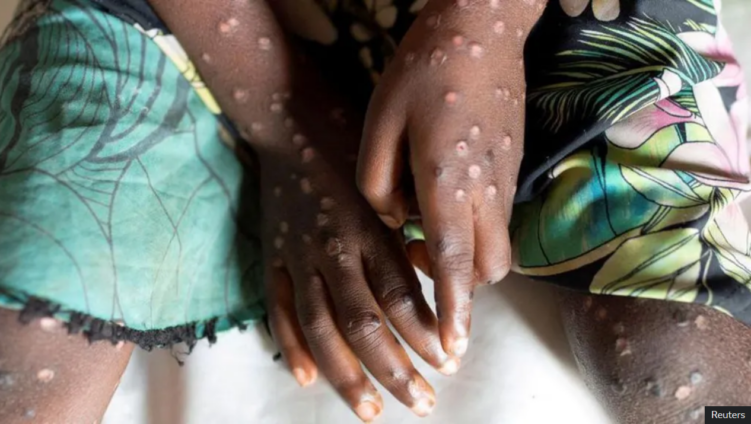Sierra Leone has declared a public health emergency after two cases of mpox were reported.
The West African country’s health minister announced the move on Monday after the second case of the deadly viral disease was confirmed.
“The confirmation of two cases of mpox in the country has prompted immediate action as mandated by the Public Health Act,” Health Minister Austin Demby told reporters in the capital, Freetown. “On behalf of the government of Sierra Leone, I am declaring a public health emergency.”
Last week, Sierra Leone reported its first confirmed case of mpox since the African Union’s health watchdog declared a public health emergency over the growing mpox outbreak on the continent last year.
A second case was confirmed after a 21-year-old man showed symptoms on January 6, the National Public Health Agency said on social media.
Neither case had known recent contact with infected animals or other sick individuals, the Ministry of Health and Sanitation said.
Only the first case involved recent travel, limited to the airport town of Lungi in the northern Port Loko District between December 26 and January 6. Both patients are receiving treatment at a hospital in Freetown.
The public health emergency “allows us to act immediately to mobilise the resources needed to contain the disease, prevent further spread and provide care to those affected”, the minister said.
Demby also announced increased border surveillance and testing, as well as the launch of a national awareness campaign. He added that Sierra Leone’s medical system was ready to respond to cases, pointing to experience gained during the Ebola and COVID-19 outbreaks.
“We urge all citizens to remain calm, stay informed and report any suspected cases promptly to healthcare authorities,” Demby said.
Mpox is caused by a virus from the same family as smallpox, manifesting in a high fever and skin lesions, called vesicles.
Also known as monkeypox, it was first identified by scientists in 1958 when outbreaks of a “pox-like” disease in monkeys occurred. Until recently, most human cases were seen in people in Central and West Africa who had close contact with infected animals.
In 2022, the virus was confirmed for the first time to spread via sex, as outbreaks were triggered in more than 70 countries across the world that had not reported mpox previously.
The Democratic Republic of the Congo (DRC) has borne the brunt of the epidemic, with a vast majority of the roughly 43,000 suspected cases and 1,000 deaths in Africa this year.
A decade ago, Sierra Leone was the epicentre of the Ebola outbreak that ravaged West Africa in an epidemic killing some 4,000 people, including nearly 7 per cent of the country’s health workers, between 2014 and 2016.
Latest Stories
-
Fear grips Nkawkaw Zongo residents over shooting incident
1 minute -
Pass Conduct of Public Officers Bill to ensure ethical governance – Ex-CHRAJ boss Anna Bossman urges
5 minutes -
KNUST partners herbal medicine practitioners to improve standards for global market competitiveness
8 minutes -
World leaders pledge over $170m to WHO at Geneva Assembly
13 minutes -
WHO Member States adopt pandemic agreement to strengthen global health security
14 minutes -
Producer inflation tumbles to 18.5% in April 2025 – GSS
16 minutes -
Ghana Cedi’s strength, falling inflation defy global economic unease
34 minutes -
Lands Commission outlines measures to decentralise operations at district level
48 minutes -
I’m optimistic Black Stars will get better – Winfried Schäfer
49 minutes -
2025 Unity Cup: Nigeria announce squad for four-nation tournament
50 minutes -
Ukrainian ex-top official shot dead outside Madrid school
51 minutes -
Ghana hosts National Finals of 24th ‘Chinese Bridge’ contest in Cape Coast
52 minutes -
British tourist arrested in Namibia over nude photos of children
56 minutes -
Bosome Freho DCE pledges to improve roads, infrastructure for local development
56 minutes -
Fred Amugi charges creatives in government to make a mark
1 hour

